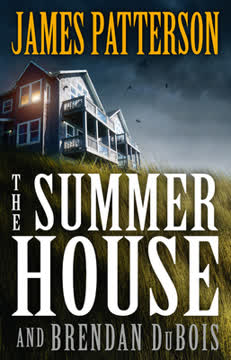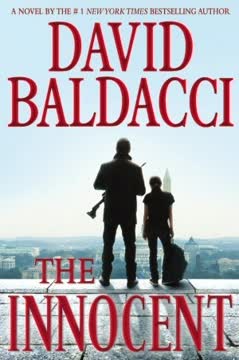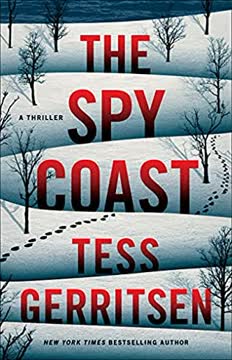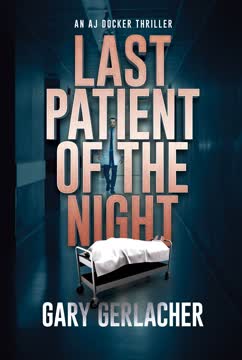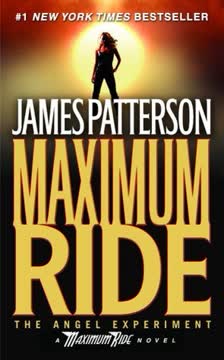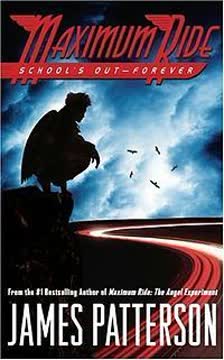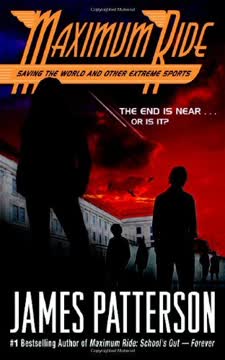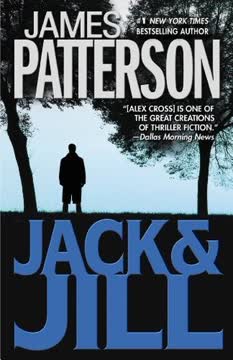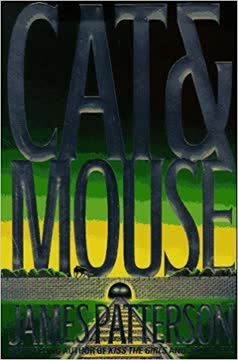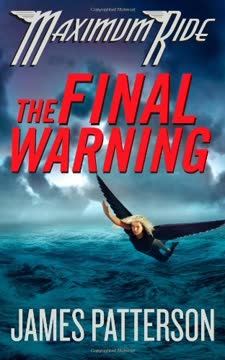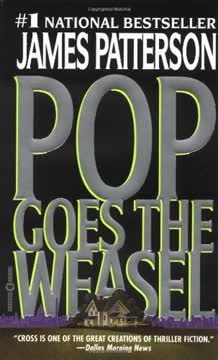Plot Summary
Blood at The Summer House
On a humid Georgia night, a rundown house known as The Summer House becomes the scene of a brutal mass murder. Seven people, including a two-year-old girl, are executed in cold blood. The victims are a mix of young adults, a mother and child, and a visiting sister. The crime is swift, professional, and horrifying, leaving the small town of Sullivan reeling. The local sheriff, Emma Williams, quickly arrests four Army Rangers from a nearby base, whose presence at the scene is supported by forensic evidence and a witness. The town is gripped by fear and outrage, and the Army is desperate to contain the fallout as the media descends.
Rangers Under Suspicion
The four arrested Rangers—Jefferson, Barnes, Tyler, and Ruiz—are not ordinary soldiers but decorated veterans, known for their skill and tight-knit loyalty. Their arrest shocks the military community and raises questions about what could drive such men to commit an atrocity. The evidence seems damning: fingerprints, shell casings, and a witness who claims to have seen their truck fleeing the scene. The Rangers maintain a stoic silence, refusing to cooperate or defend themselves, while the town and the nation demand answers and justice.
The Army's Special Team
Major Jeremiah Cook, a wounded Army CID investigator and former NYPD detective, is tasked with assembling a special team to investigate. His squad includes Connie York, a sharp but emotionally scarred investigator; Allen Pierce, a principled JAG lawyer; John Huang, a compassionate Army psychiatrist; and Manuel Sanchez, a streetwise former LAPD detective. Each brings their own baggage and perspective. They descend on Sullivan, facing hostility from the sheriff, the townspeople, and even their own Army superiors, who want the case closed quickly and quietly.
Sheriff's Wall of Secrets
Sheriff Emma Williams, a charismatic and politically connected figure, controls the crime scene and the flow of information. She refuses the Army team access to key evidence and witnesses, insisting on her jurisdiction. Her office is filled with photos of her with politicians and military brass, hinting at deeper connections. The Army team senses something is off: the investigation is too neat, the evidence too convenient, and the sheriff's deputies—many ex-military with checkered pasts—are fiercely loyal and intimidating. The town's machinery seems designed to protect itself at all costs.
Evidence and Accusations
The Army team reviews the evidence: shell casings matching a Ranger's pistol, fingerprints, and a convenience store surveillance video showing the Rangers near the scene. A traumatized witness, Wendy Gabriel, claims to have seen their truck. The coroner's report is rushed, and the murder house is soon destroyed by fire. Every piece of evidence points to the Rangers, but the team begins to notice inconsistencies—witnesses disappear, the store owner flees, and the surveillance video's timestamp doesn't match TV listings. The case against the Rangers is airtight, but it feels manufactured through framing and false evidence.
The Witnesses and the Web
As the Army team digs deeper, witnesses either recant, vanish, or die. Wendy Gabriel, the key witness, disappears with her dog. The convenience store owner flees to India after being threatened with prosecution. A deputy, Dwight Dix, contacts York, confessing his involvement in the murders and revealing the sheriff's role in orchestrating the frame-up. Before he can testify, he is killed in a staged robbery. The team realizes the sheriff's grip on the county is absolute, using blackmail, threats, and violence to silence anyone who might expose the truth through corruption and small-town power.
The Rangers' Brotherhood
Inside the jail, the Rangers' bond is unbreakable. Staff Sergeant Jefferson, their leader, is determined to protect his men at all costs. Specialist Tyler, the youngest, is wracked with guilt and ultimately takes his own life. Jefferson negotiates a plea deal: he will confess to all charges if his remaining men are freed. The Army team is devastated, sensing the Rangers' innocence but unable to break through their code of silence. The Rangers' loyalty to each other is both their strength and their undoing, as they prepare to take the fall for crimes they did not commit, demonstrating the power of psychological pressure and loyalty.
The Town's Dark Machinery
The Army team uncovers the true nature of Sullivan County: a fiefdom run by Sheriff Williams, who oversees a network of criminal enterprises, from drugs to protection rackets. Her deputies are handpicked ex-military men with nowhere else to go. The sheriff's political ambitions are tied to a rising congressman, Mason Conover, who is about to become a senator. Anyone who crosses her—witnesses, deputies, even the district attorney—faces ruin or death. The team realizes the murders were orchestrated to protect powerful secrets and silence the Rangers, who had seen too much overseas.
The Afghanistan Connection
Major Cook follows a hunch and travels to Afghanistan, risking his career and life. There, he learns the Rangers were sent home early after witnessing a U.S. congressman, escorted by then-Captain Williams, commit sexual abuse against a child in a remote village. The Rangers intervened, and the incident was covered up by sending them home and later framing them for murder. The supposed war crime they were accused of in Afghanistan was a Taliban fabrication, but the real crime was the one they witnessed. The sheriff and the congressman conspired to silence the Rangers forever, utilizing dual timelines and parallel investigations.
The Case Unravels
Back in Georgia, York is ambushed and nearly killed after meeting with the deputy who tried to confess. The sheriff orders hits on witnesses and the Army team, and even attempts to have York murdered in the hospital. The Army team, battered but relentless, exposes the doctored evidence and the sheriff's criminal empire. Cook, from Afghanistan, manages to transmit the truth to the Georgia courtroom just as Jefferson is about to be sentenced through a climax via remote revelation. The judge halts the proceedings, and the sheriff's attempt to flee ends with her being shot and arrested.
York's Deadly Meeting
York's clandestine meeting with Deputy Dix at a Waffle House is a turning point. Dix confesses the sheriff's role in the murders and the frame-up, but before he can finish, masked gunmen burst in, killing him and wounding York. She survives only through Sanchez's intervention at the hospital, fending off another assassination attempt. The team's resolve hardens as they realize the lengths to which the sheriff and her allies will go to protect themselves. York's courage and near-sacrifice galvanize the team and cracks the case open.
The Sheriff's Last Stand
With the conspiracy exposed, Sheriff Williams tries to flee, but is confronted and shot by Army psychiatrist Huang. Her deputies turn on each other, and her criminal network collapses. The district attorney, once complicit, is forced to cooperate. The town's machinery of corruption is dismantled, and the Army team ensures the Rangers' release. The sheriff's political patron, Congressman Conover, is implicated in the original crime, ending his career. The cost is high—lives lost, careers ruined, and innocence shattered—but justice is finally served.
Justice and Aftermath
In the aftermath, the Army team is scattered—some facing discipline, others contemplating retirement. York recovers in the hospital, her survival a testament to resilience. Jefferson and his men are freed, but haunted by what they endured. Cook, physically and emotionally scarred, contemplates his future as a soldier and a cop. The town of Sullivan is left to reckon with its own darkness. The case is closed, but the wounds—personal and communal—remain. The Army team's integrity and sacrifice stand as a rare victory against overwhelming corruption, demonstrating the power of aftermath and moral reckoning.
Wolves and Sheep
The story closes with reflections on the nature of violence, loyalty, and justice. The Rangers, trained as wolves, struggle to return to civilian life as sheep. The Army team, outsiders in every sense, risk everything to uncover the truth. The line between good and evil, soldier and criminal, is blurred by circumstance and power. In the end, the only thing that endures is the bond between those who choose to do what is right, no matter the cost. The Summer House stands as a grim reminder of how far the powerful will go to protect themselves—and how much it takes to bring them down.
Characters
Major Jeremiah Cook
Major Cook is a former NYPD detective and Army CID investigator, physically and emotionally scarred from an IED in Afghanistan. Driven by a deep sense of justice and a cop's intuition, he is both methodical and empathetic, but struggles with pain, trauma, and a fractured family. Cook's leadership is tested as he navigates a hostile town, Army bureaucracy, and his own limitations. His journey to Afghanistan is both a literal and psychological return to the source of the case's darkness. Cook's arc is one of sacrifice, resilience, and the burden of truth—he is a man who cannot let injustice stand, even at great personal cost.
Special Agent Connie York
York is Cook's second-in-command, a skilled investigator with a history of failed relationships and a tough exterior that masks deep wounds. Her tenacity and intelligence are matched by her willingness to take risks, even when it nearly costs her life. York's near-fatal encounter at the Waffle House and her survival in the hospital become a symbol of the team's endurance. She is both a moral compass and a catalyst, pushing the investigation forward when others falter. York's development is marked by her growing confidence, her loyalty to the team, and her refusal to be intimidated by power.
Staff Sergeant Caleb Jefferson
Jefferson is the stoic, fiercely loyal leader of the accused Rangers. His sense of responsibility for his men is absolute, driving him to accept guilt for crimes he did not commit to save them. Jefferson is haunted by what he witnessed in Afghanistan and the impossible choices forced upon him. His psychological complexity lies in his willingness to bear any burden for his "family," even as the system betrays him. Jefferson's arc is one of tragic nobility—he is a man shaped by war, loyalty, and the knowledge that sometimes, survival means silence.
Sheriff Emma Williams
Williams is the embodiment of small-town power gone rotten. Outwardly charming and politically savvy, she is in reality a criminal mastermind, running Sullivan County as her personal fiefdom. Her deputies are loyal ex-military men, and her connections reach into state and national politics. Williams is driven by ambition, a need for control, and a willingness to destroy anyone who threatens her. Her psychological profile is that of a narcissist and sociopath, capable of both calculated violence and public charm. Her downfall is as dramatic as her rise, undone by her own hubris and the persistence of her enemies.
Special Agent Manuel Sanchez
Sanchez, a former LAPD detective, brings a hard-edged realism and suspicion to the team. He is quick to spot deception and unafraid to confront danger head-on, as seen in his defense of York at the hospital. Sanchez's loyalty is to his team and the truth, but he is also wary of authority and the easy answers. His psychological makeup is that of a survivor—pragmatic, resourceful, and always alert to the hidden dangers in any situation. Sanchez's arc is one of grudging respect for his colleagues and a willingness to risk everything for justice.
Captain Allen Pierce
Pierce is the team's JAG lawyer, principled and methodical, with a strong sense of right and wrong. He is often the voice of reason, navigating the legal and ethical minefields of the case. Pierce's background as a Black officer in the Army and his experiences with systemic injustice inform his actions and empathy. He is both a stabilizing force and a man struggling with the limits of the law in the face of overwhelming corruption. Pierce's arc is one of growth, as he moves from cautious observer to active defender of the innocent.
Lieutenant John Huang
Huang is the team's Army psychiatrist, more comfortable with therapy than violence. He is deeply affected by the trauma of those around him, especially the suicide of Specialist Tyler. Huang's struggle is with his own sense of inadequacy as a soldier and his desire to heal rather than harm. His confrontation with Sheriff Williams, where he is forced to use his weapon, marks a turning point—he becomes an unlikely hero, acting decisively when it matters most. Huang's arc is one of self-acceptance and the realization that sometimes, doing good means taking action.
Specialist Vinny Tyler
Tyler is the youngest and most vulnerable of the accused Rangers. Haunted by the violence he has witnessed and committed, he is unable to cope with the pressure and ultimately takes his own life in jail. Tyler's arc is a tragic one, illustrating the psychological toll of war and the impossibility of returning to normalcy. His death is a catalyst for the team, deepening their resolve and highlighting the human cost of the conspiracy.
District Attorney Cornelius Slate
Slate is the county's district attorney, a man of legal skill but limited courage. He is both a tool and a victim of the sheriff's power, complicit in the cover-up but ultimately forced to cooperate when the truth emerges. Slate's arc is one of survival—he is a man who bends with the wind, but is ultimately swept aside by forces greater than himself.
Congressman Mason Conover
Conover is the unseen hand behind the conspiracy, a congressman (and soon-to-be senator) whose crime in Afghanistan sets the entire tragedy in motion. His need to protect his career and reputation leads him to conspire with Williams to silence the Rangers. Conover's psychological profile is that of a sociopath—charming, ruthless, and utterly self-serving. His exposure and downfall are the final act of justice in a story defined by abuse of power.
Plot Devices
Framing and False Evidence
The central plot device is the deliberate framing of the Rangers for a crime they did not commit. The sheriff and her deputies manufacture evidence—fingerprints, shell casings, doctored surveillance footage—and manipulate witnesses through threats and blackmail. This device creates a sense of claustrophobia and paranoia, as the Army team realizes every piece of evidence is a trap. The narrative structure uses red herrings and misdirection, keeping both the characters and the reader off-balance until the truth is painstakingly uncovered.
Dual Timelines and Parallel Investigations
The story unfolds on two fronts: the present-day investigation in Georgia and the buried secrets of Afghanistan. Flashbacks and parallel action reveal how the events overseas are inextricably linked to the murders at The Summer House. The use of dual timelines heightens suspense and allows for foreshadowing, as clues in one setting illuminate mysteries in the other. The convergence of these threads in the climax is both satisfying and thematically resonant.
Psychological Pressure and Loyalty
The psychological device of loyalty—both its strength and its destructiveness—runs throughout the novel. The Rangers' refusal to betray each other, even under threat of death, is mirrored by the Army team's commitment to the truth. The pressure to remain silent, to protect one's own, and to sacrifice for the group is explored through confessions, suicide, and the ultimate plea deal. This device deepens character development and raises the stakes, making every decision fraught with moral ambiguity.
Corruption and Small-Town Power
The town of Sullivan is depicted as a microcosm of entrenched power, where the sheriff's control is absolute and the machinery of justice is rigged. The Army team's outsider status is both a narrative obstacle and a source of tension, as they struggle to break through the town's defenses. The use of political connections, intimidation, and violence as plot devices underscores the theme of systemic corruption and the difficulty of achieving justice.
Climax via Remote Revelation
The climax employs the device of a remote revelation—Cook, wounded and under fire in Afghanistan, transmits the truth to the Georgia courtroom just in time to prevent a miscarriage of justice. This device heightens suspense and dramatizes the global reach of the conspiracy. The use of technology (Skype, satellite phones) bridges the gap between worlds and underscores the interconnectedness of the characters' fates.
Aftermath and Moral Reckoning
The resolution is not a simple restoration of order. The Army team is scattered, careers are damaged, and the psychological scars remain. The plot device of aftermath—hospital scenes, debriefings, and personal reckonings—serves to ground the story in reality. Justice is achieved, but at a cost, and the characters are left to grapple with what they have lost and what they have learned.
Analysis
James Patterson's The Summer House is a high-velocity thriller that uses the conventions of crime fiction to explore deeper themes of loyalty, corruption, and the psychological toll of violence. At its core, the novel is a meditation on the cost of truth in a world where power protects itself at any price. The Army team's investigation is not just a procedural puzzle but a battle against a system designed to crush dissent and reward silence. The use of dual timelines—linking a small-town massacre to a buried war crime in Afghanistan—underscores the global reach of corruption and the impossibility of escaping the past. The characters are defined by their willingness to sacrifice for others, whether out of loyalty, guilt, or a sense of duty. The novel's structure, with its relentless pacing and shifting perspectives, mirrors the confusion and paranoia of the investigation itself. Ultimately, The Summer House is a story about the thin line between wolves and sheep, soldiers and civilians, justice and revenge. It asks whether it is possible to do the right thing in a world where the powerful rewrite the rules—and suggests that, sometimes, the only victory is refusing to give up, no matter the odds. The lesson is clear: justice is never easy, and the cost of silence is always too high.
Last updated:
Review Summary
The Summer House received mostly positive reviews, with readers praising its fast-paced plot, intriguing mystery, and well-developed characters. Many enjoyed the military investigation angle and the twists throughout the story. Some readers found the multiple perspectives and military jargon challenging, while others appreciated the complexity. The book was described as a thrilling ride that kept readers engaged until the end. Several reviewers expressed hope for a potential series featuring the main character, Major Jeremiah Cook, and his team.
Download PDF
Download EPUB
.epub digital book format is ideal for reading ebooks on phones, tablets, and e-readers.
